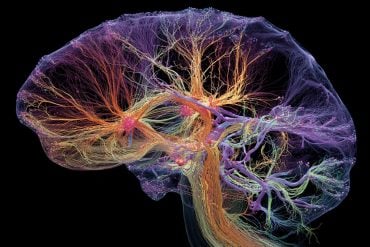Summary: Frequent use of high-potency cannabis leaves unique molecular marks on DNA, particularly affecting genes related to energy and immune function. Researchers found that DNA methylation—an epigenetic modification—differed between frequent cannabis users who had experienced psychosis and those who had not, suggesting a possible genetic link to psychosis risk.
This discovery may enable DNA blood tests to help identify cannabis users more susceptible to psychosis, potentially informing future preventative approaches. As cannabis use becomes more prevalent, understanding its biological impact is critical, especially for mental health.
Title: High Potency Cannabis Leaves Distinct DNA Mark, Linked to Mental Health
A study has revealed that frequent use of high-potency cannabis leaves unique molecular marks on DNA, particularly affecting genes related to energy and immune function. Researchers found that DNA methylation—an epigenetic modification—differed between frequent cannabis users who had experienced psychosis and those who had not, suggesting a possible genetic link to psychosis risk. This discovery may enable DNA blood tests to help identify cannabis users more susceptible to psychosis, potentially informing future preventative approaches. As cannabis use becomes more prevalent, understanding its biological impact is critical, especially for mental health.
Key Facts:
- High-potency cannabis affects genes linked to energy and immune response.
- Frequent use leaves distinct DNA marks, potentially linked to psychosis risk.
- Findings could enable future DNA tests for psychosis susceptibility in cannabis users.
Source: King’s College London
Published in Molecular Psychiatry, this is the first study to suggest that the use of high potency cannabis leaves a distinct mark on DNA, providing valuable insights into the biological impact of cannabis use.
High potency cannabis is defined as having Delta-9-tetrahydrocannabinol (THC) content of 10 percent or more.

The research also showed the effect of cannabis use on DNA is different in people experiencing their first episode of psychosis compared to users who have never experienced psychosis, suggesting there could be potential for DNA blood tests to help characterise those cannabis users at risk of developing psychosis to inform preventative approaches.
The study was funded by the Medical Research Council, the National Institute for Health and Care Research (NIHR) Maudsley Biomedical Research Centre (BRC) and the NIHR Exeter BRC.
Senior author Marta Di Forti, Professor of Drugs, Genes and Psychosis at King’s IoPPN said: “With the increasing prevalence of cannabis use and more availability of high potency cannabis, there is a pressing need to better understand its biological impact, particularly on mental health.
“Our study is the first to show high potency cannabis leaves a unique signature on DNA related to mechanisms around the immune system and energy production.
“Future research needs to explore if the DNA signature for current cannabis use, and in particular the one of high potency types, can help identify those users most at risk to develop psychosis, both in recreational and medicinal use settings.”
Researchers explored the effects of cannabis use on DNA methylation – a chemical process detected in blood samples that alters how genes are functioning (whether they are switched ‘on’ or ‘off’).
DNA methylation is a type of epigenetic change, which means it alters gene expression without affecting the DNA sequence itself and is considered a vital factor in the interplay between risk factors and mental health.
The laboratory team at the University of Exeter conducted complex analyses of DNA methylation across the whole human genome using blood samples from both people who have experienced first-episode psychosis and those who have never had a psychotic experience.
The researchers investigated the impact of current cannabis use, including frequency and potency, on DNA of a total of 682 participants
The analysis showed that frequent users of high-potency cannabis had changes in genes related to mitochondrial and immune function, particularly the CAVIN1 gene, which could affect energy and immune response.
These changes were not explained by the well-established impact that tobacco has on DNA methylation, which is usually mixed into joints by most cannabis users.
Dr Emma Dempster, Senior Lecturer at the University of Exeter and the study’s first author, said: “This is the first study to show that frequent use of high-potency cannabis leaves a distinct molecular mark on DNA, particularly affecting genes related to energy and immune function.
“Our findings provide important insights into how cannabis use may alter biological processes. DNA methylation, which bridges the gap between genetics and environmental factors, is a key mechanism that allows external influences, such as substance use, to impact gene activity.
“These epigenetic changes, shaped by lifestyle and exposures, offer a valuable perspective on how cannabis use may influence mental health through biological pathways.”
Dr Emma Dempster meta-analysed data from two cohorts: the GAP study, which consists of patients with first episode psychosis in South London and Maudsley NHS Foundation Trust, and the EU-GEI study, which consists of patients with first episode psychosis and healthy controls across England, France, the Netherlands, Italy, Spain and Brazil. This totalled 239 participants with first episode psychosis and 443 healthy controls representing the general population from both studies sites who had available DNA samples.
Most of the cannabis users in the study used high-potency cannabis more than once a week (defined as frequent use) and had first used cannabis at age 16-years-old, on average. High potency cannabis was defined as having Delta-9-tetrahydrocannabinol (THC) content of 10 per cent or greater. THC is the principal psychoactive constituent in cannabis.
About this epigenetics and CUD research news
Author: Franca Davenport
Source: King’s College London
Contact: Franca Davenport – King’s College London
Image: The image is credited to Neuroscience News
Original Research: Open access.
“Methylomic signature of current cannabis use in two first-episode psychosis cohorts” by Marta Di Forti et al. Molecular Psychiatry
Abstract
Methylomic signature of current cannabis use in two first-episode psychosis cohorts
The rising prevalence and legalisation of cannabis worldwide have underscored the need for a comprehensive understanding of its biological impact, particularly on mental health.
Epigenetic mechanisms, specifically DNA methylation, have gained increasing recognition as vital factors in the interplay between risk factors and mental health. This study aimed to explore the effects of current cannabis use and high-potency cannabis on DNA methylation in two independent cohorts of individuals experiencing first-episode psychosis (FEP) compared to control subjects.
The combined sample consisted of 682 participants (188 current cannabis users and 494 never users). DNA methylation profiles were generated on blood-derived DNA samples using the Illumina DNA methylation array platform. A meta-analysis across cohorts identified one CpG site (cg11669285) in the CAVIN1 gene that showed differential methylation with current cannabis use, surpassing the array-wide significance threshold, and independent of the tobacco-related epigenetic signature.
Furthermore, a CpG site localised in the MCU gene (cg11669285) achieved array-wide significance in an analysis of the effect of high-potency (THC = > 10%) current cannabis use. Pathway and regional analyses identified cannabis-related epigenetic variation proximal to genes linked to immune and mitochondrial function, both of which are known to be influenced by cannabinoids.
Interestingly, a model including an interaction term between cannabis use and FEP status identified two sites that were significantly associated with current cannabis use with a nominally significant interaction suggesting that FEP status might moderate how cannabis use affects DNA methylation.
Overall, these findings contribute to our understanding of the epigenetic impact of current cannabis use and highlight potential molecular pathways affected by cannabis exposure.







